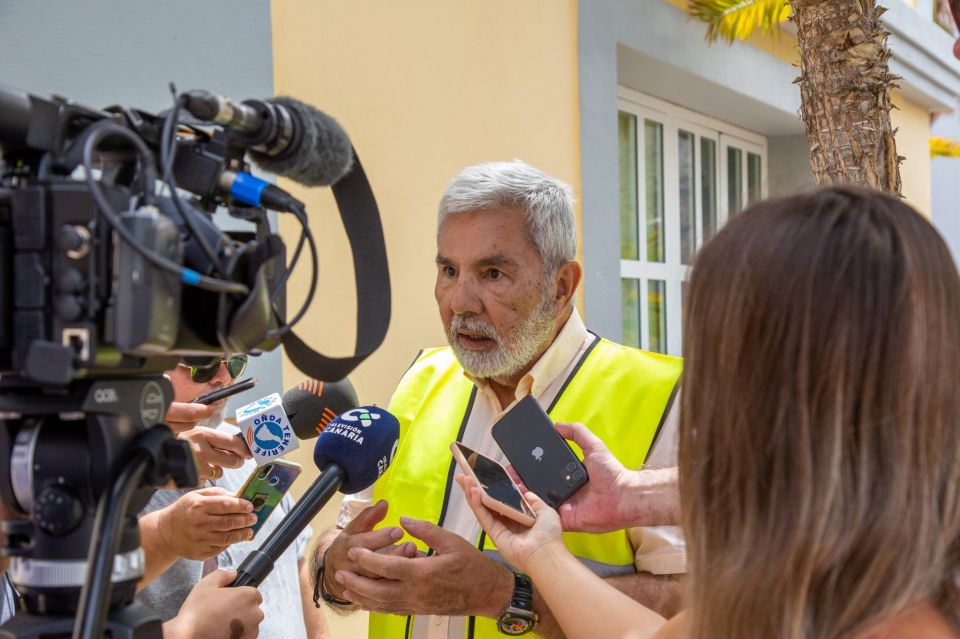The Tenerife Cabildo president, Pedro Martín, visited the works on the new water plant in Adeje yesterday. The plant will, when finished, produce up to 25,000m3 of water fit for watering plants daily. This is water that is coming from sewage from Adeje and Arona and being cleansed for agricultural purposes.
The cost of the new plant, €8.7 million, is being covered by the Cabildo. As the island councillor for sustainable development, Javier Rodriguez, commented, “This is a fundamental advance in our circular economy, converting waste into a new resource”.
Cabildo president Pedro Martín explained that the Cabildo sees this development as part of the plan to improve and amplify the water treatment installations in the island, as part of an overall transformation plan for Tenerife, which has been sanctioned in the past for poor water treatment and the discovery of waste in the sea.
He said, “Since 2019 we have been treating 100% of the sewage and now, with the new purification system the water will be apt for use in agriculture”, and available for farmers in much of the south, from San Miguel to Santiago del Teide”.
Adeje mayor Jose José Miguel Rodríguez Fraga said, “we are taking a very important step forward….dealing with one of our primary environmental problems, the use of water”. He said that this is important in dealing with a matter that might not been seen as hugely relevant politically but one that requires commitment and a responsible attitude from all the local administrations to ensure the local population, famers, and tourists, can depend upon a quality water service. “The possibility of having access to 25.000 cubic metres of purified desalinated water daily for agricultural purposed is great news”, he added.
Arona mayor José Julian Mena underlined the importance of these advances, in both purifying the water as well as treating it so it can be reused for agriculture, an important move in the sustainability path for the primary sector.
